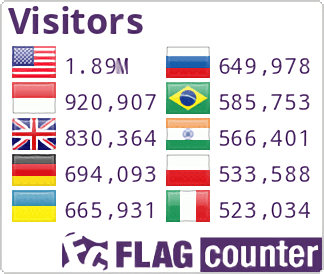Reflection on Frantz Fanon’s Postcolonial Thought in the Context of Land Hegemony in Indonesia and Church Social Praxis
DOI:
https://doi.org/10.55935/thilo.v6i1.293Keywords:
decolonization, domein verklaring, inclusive social structure, colonial hegemonic residue, land hegemonyAbstract
This study discusses land hegemony in Indonesia, a historical product of colonialism. It is rooted in agrarian policy, which created the term domein verklaring, where land, where proof of ownership cannot be shown, is claimed as state-owned land. This colonial logic continued to be inherited and persisted in land issues even when Indonesia became independent. This paper uses Frantz Fanon's postcolonial theory as an analytical instrument to see the relationship between land hegemony and colonial residue. It is also hoped that the use of Fanon's postcolonial theory can provide an important contribution to the church in the "new era" to reflect on faith and become a theoretical basis for church projects involved in social transformation. This paper has three findings. First, land hegemony is rooted in colonialism policies that are still inherited today in Indonesia. Second, for Fanon, decolonization is the only way to liberate the oppressed, and the prerequisite is taking back the most fundamental and concrete value, i.e land. Third, the theoretical basis of Fanon's postcolonial theory provides options for an engaged church project for the protest and process of social transformation.
Downloads
References
Aditjondro, Geogre. “Kontribusi Psikologi Radikal Frantz Fanon Dalam Pendampingan Korban Konflik Sosial Di Poso.” Jurnal Al-Qalam 21, no. 18 (2006): 149–57. https://doi.org/10.31969/alq.v12i2.574.
Djalins, Upik, and Noer Fauzi Rachman. “Pengantar Untuk Membaca Karya Cornelis van Vollenhoven (1919) Orang Indonesia Dan Tanahnya.” In Orang Indonesia Dan Tanahnya. Bogor: Sagjoyo Institue, 2013.
Fanon, Frantz. Bumi Berantakan. Translated by Ahmad Asnawi. Jakarta: TepLOK PRESS, 2000.
———. The Wretched of The Earth. Translated by Constance Farrington. New York: Grove Press, 1963.
———. Toward The African Revolution. Translated by Haakon Chevalier. New York: Grove Press, 1967.
Firdausi, Fadrik Aziz. “Sejarah Hidup Cornelis Van Vollenhoven, Bapak Hukum Adat Indonesia.” tirto.id, 2019.
Gandhil, Leela. Teori Poskolonial : Upaya Meruntuhkan Hegemoni Barat. Translated by Ruslani, Yuwan Wahyutri, and Nur Hamidah. Yogyakarta: Qalam, 2006.
Keller, Catherine. “Introduction (Alien/Nation, Liberation and The Postcolonial Underground).” In Postcolonial Theologies Divinity and Empire, edited by Catherine Keller, Michael Nausner, and Mayra Rivera, 1–21. St. Louis, Missouri: Chalice Press, 2004. https://archive.org/details/postcolonialtheo0000unse_i4c4/page/n3/mode/2up?view=theater.
Luthfi, Ahmad Nashih. Melacak Sejarah Pemikiran Agraria (Sumbangan Pemikiran Mazhab Bogor). Yogyakarta: STPN Press, Pustaka Ifada, Sajogyo Institue, 2011.
More, Mabogo Percy. “Fanon and the Land Question in (Post)Apartheid South Africa.” In Living Fanon, 173–85. New York: Palgrave Macmillan US, 2011. https://doi.org/10.1057/9780230119994_15.
Mulki, M. Aziz. “Hak Menguasai Negara Atas Tanah Di Indonesia Dan Paradoks Kedaulatan Negara.” LSF Discourse, 2024. https://lsfdiscourse.org/hak-menguasai-negara-atas-tanah-di-indonesia-dan-paradoks-kedaulatan-negara/.
Narasi. Rezim Jokowi Membangun PSN Untuk Siapa? Warga Atau Swasta? Indonesia: Narasi, 2023.
Nielson, Jeffrey. “Domein Verklaring: Colonial Legal Legacies and Community Access to Land in Indonesia.” Georgetown Journal of International Affairs, 2020. https://gjia.georgetown.edu/2020/11/25/domein-verklaring-colonial-legal-legacies-and-community-access-to-land-in-indonesia/.
Peterson, Charles. “Frantz Fanon.” Britanica, 2023. https://www.britannica.com/biography/Frantz-Fanon.
Philofest Id. Poskolonialisme Pemikiran Tokoh Intelektual Indonesia / Riwanto Tirtosudarmo & Robertus Wijanarko. Indonesia: Philofest ID, 2022.
Riyanto, Armada. RELASIONALITAS FILSAFAT FONDASI INTERPRETASI : Aku, Teks, Liyan, Fenomena. Yogyakarta: Kanisius, 2018.
Sinode GKSBS. “Perjuangan Rakyat, Perjuangan Gereja.” gksbs.org, 2017. https://gksbs.org/2017/02/10/perjuangan-rakyat-perjuangan-gereja/.
Soesangobeng, Herman. Filosofi, Asas, Ajaran, Teori Hukum Pertanahan, Dan Agraria. Yogyakarta: STPN Press, 2012.
Standford Encyclopedia of Philosophy. “Frantz Fanon.” Standford Encyclopedia of Philosophy, 2019. https://plato.stanford.edu/entries/frantz-fanon/.
Sugirtharajah, R.S. “Postcolonial Reconfigurations : An Alternative Way of Reading the Bible and Doing Theologi.” In Postcolonial Theologies Divinity and Empire, edited by Catherine Keller, Michael Nausner, and Mayra Rivera. St. Louis, Missouri: Chalice Press, 2003.
Watchdoc. Tanah Moyangku. Indonesia: Watchdoc Documentary, 2023.
Widyatmadja, Josef Purnama. YESUS DAN WONG CILIK: Praksis Diakonia Transformatif Dan Teologi Rakyat Indonesia. Jakarta: BPK Gunung Mulia, 2010.
Wijanarko, Robertus. “POSKOLONIALISME DAN STUDI TEOLOGI Sebuah Pengantar.” Studia Philosophica et Theologica 8, no. 2 (2008): 123–32. https://doi.org/https://doi.org/10.35312/spet.v8i2.102.
———. “Poskolonialisme Dan Teologi Kontekstual Di Indonesia.” In Berteologi Baru Untuk Indonesia, edited by Robert Pius Manik, Gregorius Pasi, and Yustinus. Yogyakarta: Kanisius, 2020.
Wijanarko, Robertus, and Valentinus Saeng. “Human Beings and Social Structure in Frantz Fanon’s Philosophical Thought.” Jurnal Filsafat 32, no. 1 (June 9, 2022): 87. https://doi.org/10.22146/jf.66631.
Yehezkiel, Pascal Wilmar. “Ketidakadilan Agraria: Partisipasi Manipulatif Dan Problem Hak Menguasai Negara.” INDOPROGRESS, 2023. https://indoprogress.com/2023/11/ketidakadilan-agraria-partisipasi-manipulatif-dan-problem-hak-menguasai-negara/.

Additional Files
Published
How to Cite
Issue
Section
License
Copyright (c) 2024 Rex Firenze Tonta

This work is licensed under a Creative Commons Attribution-NonCommercial-ShareAlike 4.0 International License.
The author retains copyright and also agrees to grant Theologia in Loco the right of first publication with the work simultaneously licensed under CC Attribution-NonCommercial-ShareAlike 4.0.






